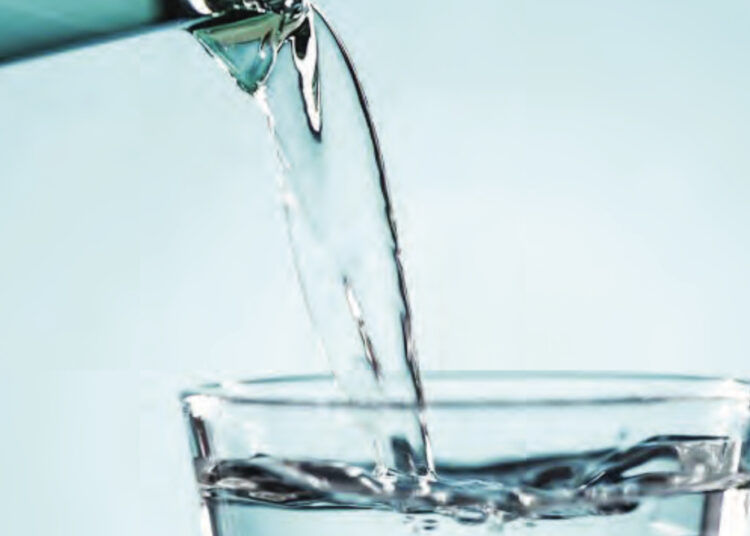Did you know that the human body can last weeks without food, but only days without water?
The body is made up of 50 to 75 per cent water. Water forms the basis of blood, digestive juices, urine and perspiration, and is contained in lean muscle, fat and bones.
As the body can’t store water, we need fresh supplies every day to make up for losses from the lungs, skin, urine and faeces (poo). The amount we need depends on our body size, metabolism, the weather, the food we eat and our activity levels.
Body water content is higher in men than in women and falls in both with age.
Most mature adults lose about 2.5 to 3 litres of water per day. Water loss may increase in hot weather and with prolonged exercise.
Elderly people lose about 2 litres per day.
An air traveller can lose approximately 1.5 litres of water during a three-hour flight.
Water loss needs to be replaced.
Water is needed for most body functions, including to:
- Maintain the health and integrity of every cell in the body.
- Keep the bloodstream liquid enough to flow through blood vessels.
- Help eliminate the by-products of the body’s metabolism, excess electrolytes (for example, sodium and potassium), and urea, which is a waste product formed through the processing of dietary protein.
- Regulate body temperature through sweating.
- Moisten mucous membranes (such as those of the lungs and mouth).
- Lubricate and cushion joints.
- Reduce the risk of urinary tract infections (UTIs), such as cystitis by keeping the bladder clear of bacteria.
- Aid digestion and prevent constipation.
- Moisturise the skin to maintain its texture and appearance.
- Carry nutrients and oxygen to cells.
- Serve as a shock absorber inside the eyes, spinal cord and in the amniotic sac surrounding the foetus in pregnancy
Most foods, even those that look hard and dry, contain water. The body can get about 20 per cent of its total water requirements from solid foods alone.
The process of digesting foods also produces a small amount of water as a by-product which can be used by the body. Water sourced this way can provide around 10 per cent of the body’s water requirements.
The remaining 70 per cent or so of water required by the body must come from fluids (liquids).
According to better health, here is how much fluid to drink each day
Infants 0–6 months: 0.7 litres(from breast milk)
Infants 7–12 months: 0.8 litres total (with 0.6 litres as fluids)
Girls and boys 1–3 years :1 litre (about 4 cups)
Girls and boys 4–8 years: 1.2 litres (about 5 cups)
Boys 9–13 years: 1.6 litres (about 6 cups)
Boys 14–18 years: 1.9 litres (about 7–8 cups)
Girls 9–13 years: 1.4 litres (about 5–6 cups)
Girls 14–18 years: 1.6 litres (about 6 cups)
Men 19 years+: 2.6 litres (about 10 cups)
Women 19 years+ 2.1 litres (about 8 cups)
Pregnant girls 14–18 years: 1.8 litres (about 7 cups)
Pregnant women 19 years+: 2.3 litres (about 9 cups)
Lactating girls 14–18 years: 2.3 litres (about 9 cups)
Lactating women 19 years+: 2.6 litres (about 10 cups)
I addition, here are few tips for drinking more water
- Add a squeeze or slice of lemon or lime, or some strawberries or mint leaves to plain water to add variety.
- Keep a bottle or glass of water handy on your desk or in your bag.
3.Drink some water with each meal and snack.
- Add ice cubes made from fresh fruit to a glass of water.





